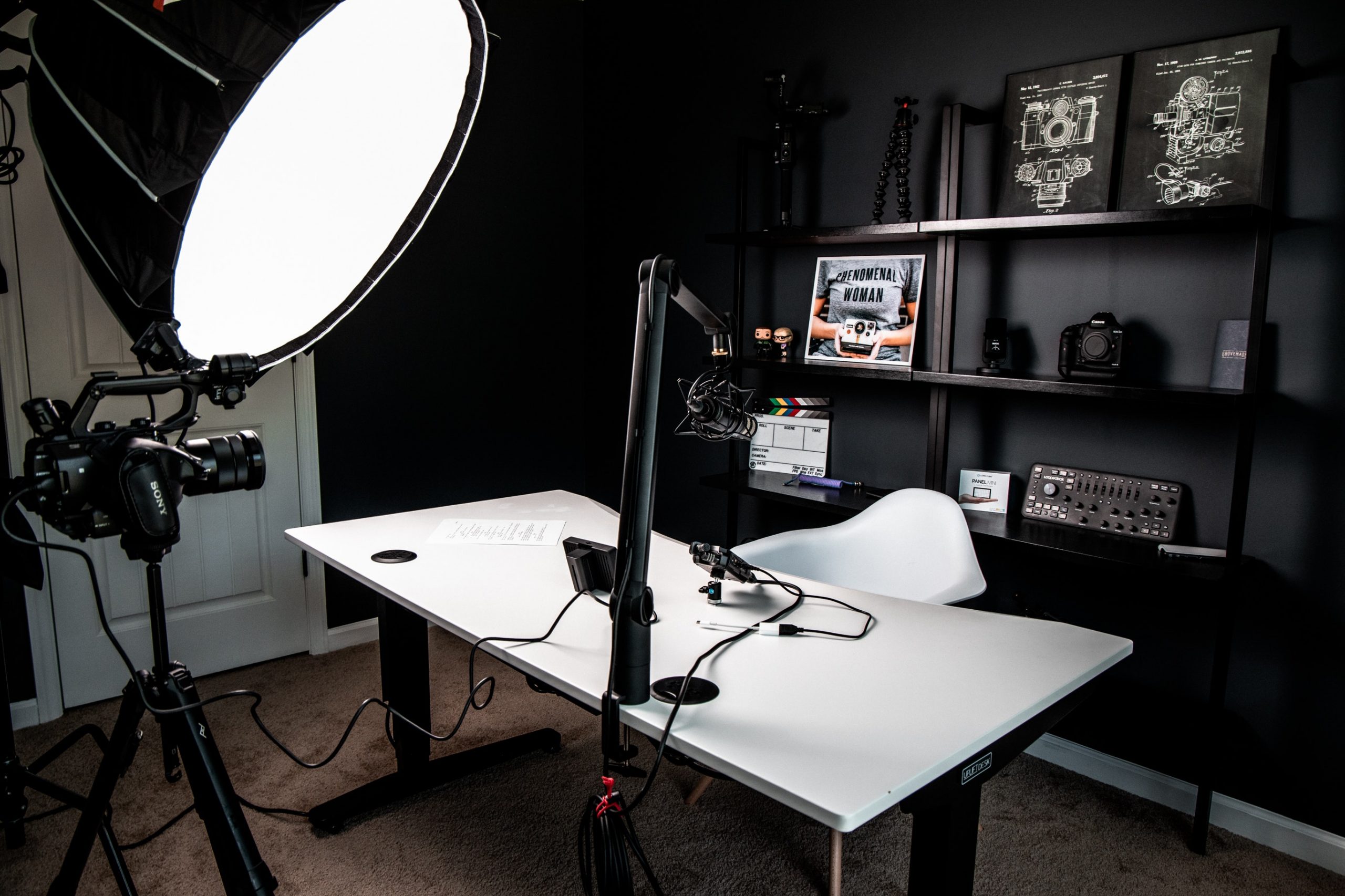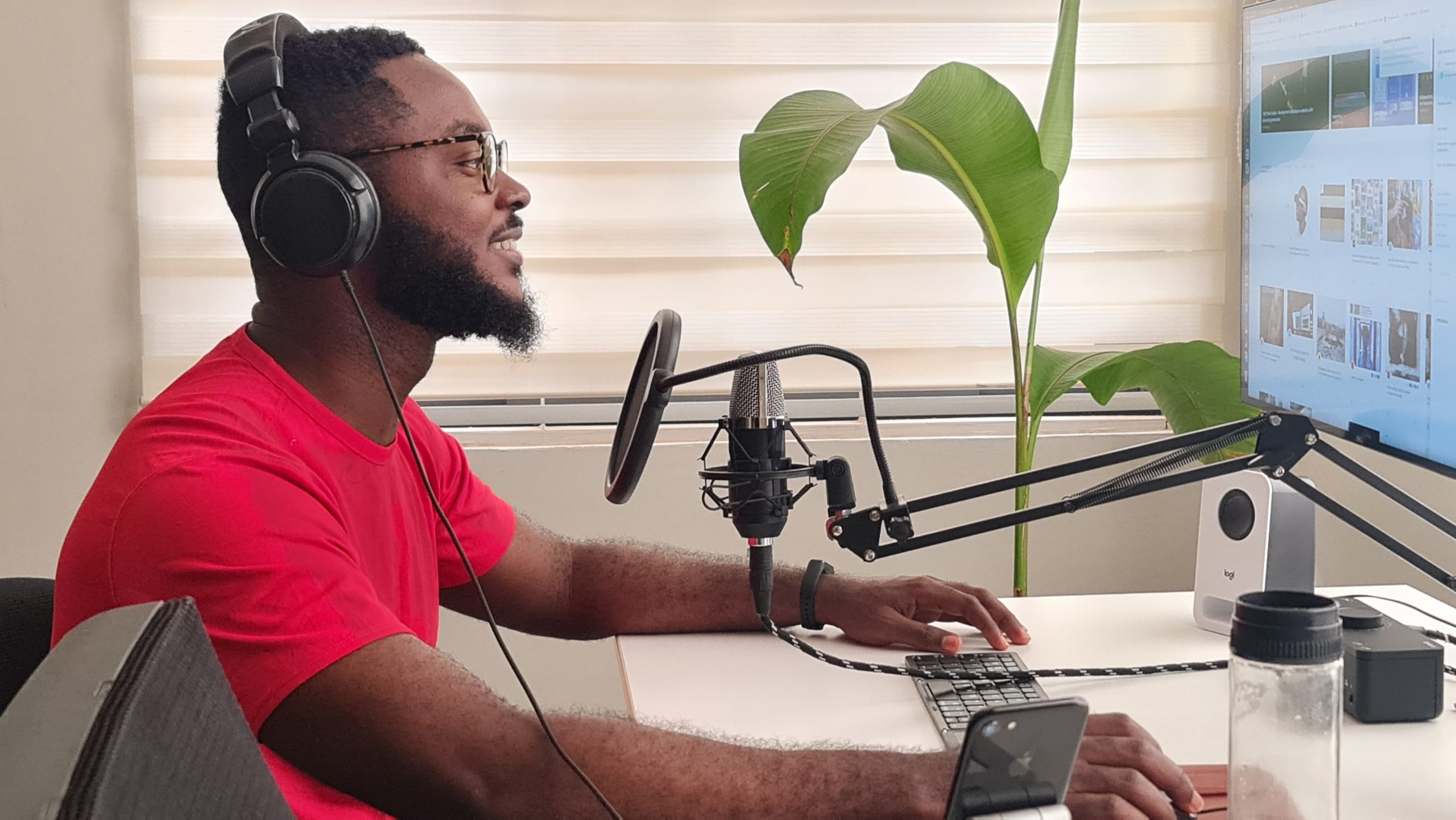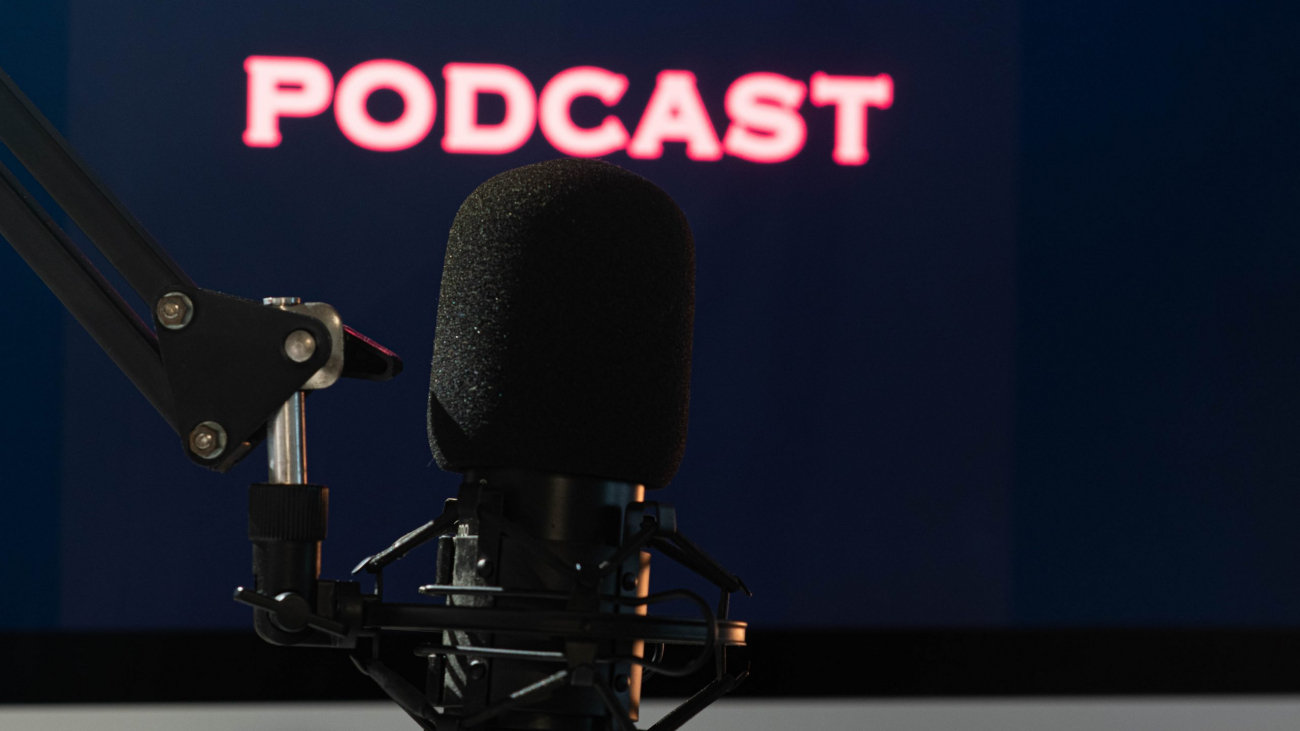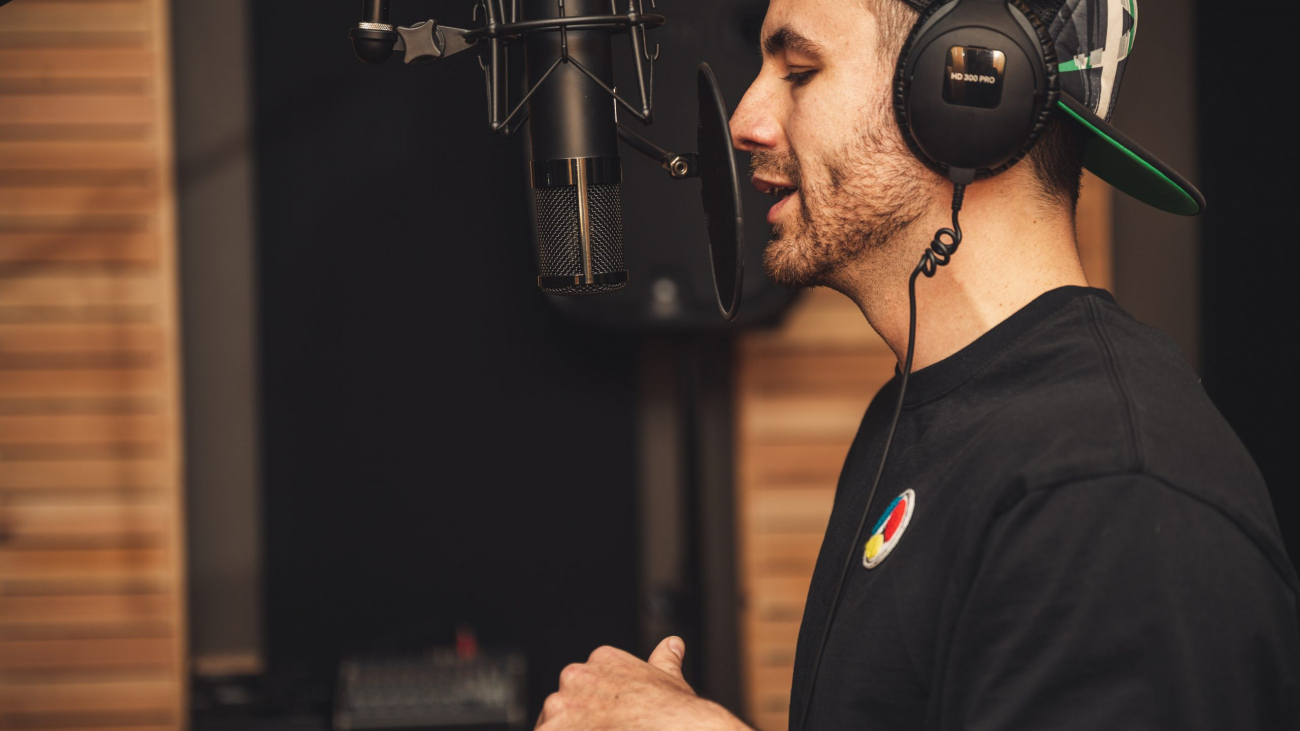A podcast is a digital radio channel that broadcasts talk, news, interviews, music, and other audio for a small group of listeners called podcast hosts. Podcasts are accessible via desktop and mobile devices, which makes them an ideal medium for content marketers looking to reach a wider audience. Users listen to podcasts instead of radio broadcasts. There’s no need to tune in at a particular time, and podcast hosts can share new episodes with listeners whenever they’re available. You can also create your podcast in just a few simple steps. Read on to learn how to launch a podcast, from choosing a topic to editing episodes.
Podcasts have become more and more popular over the past few years. This is thanks to the ease of listening to them is you can do it anywhere and at any time and the fact that they can be a great way to expand your audience and communicate your brand message. Whether you’re looking to expand your brand and reach new audiences or just want a new way to share your ideas and experiences with your friends and family, a
podcast is a great way to do it. In this article, you’ll learn how to create a podcast campaign from the ground up.
You’ll learn how to figure out your target audience and find the right podcast to host your first episodes. You’ll learn the different types of podcasts and the best ways to promote your new one. And you’ll learn how to create a podcast campaign from scratch so that you can start monetizing your show right away. If you’re ready, let’s
get started!
What is a Podcast Campaign?
A podcast campaign is a marketing strategy that combines a series of different strategies and tactics to drive traffic and build an audience for your new podcast. It’s a large-scale effort to grow your following and find new listeners, and it typically lasts for several months. You’ll find that the best podcast campaigns are ones that are contextually relevant to your target audience. This will help you find new listeners who are looking for content that you have to offer. And once you’ve found these people, you can start building a relationship with them.
A great way to start a podcast campaign is by finding an influencer to partner with. Finding an influencer to partner with can help you reach an entirely new audience, as well as allow you to build a larger following. There are a few different ways you can find influencers to partner with, but you’ll want to search for reputable people in your niche.

Why Create a Podcast Campaign?
One of the best things about creating a campaign around your new podcast is that you can do it for a long period. This means that you’ll get to grow your audience over the long term and build a strong relationship with them.
This is why creating a campaign around your podcast is such a great idea — it lets you build a long-lasting relationship with your audience, and it means that you can keep growing your community for a long time.
This strategy can also help you reach new audiences, find new ways to grow your following, and tap into a new market. If you’re looking to expand your reach, a podcast campaign is a great way to do it.
How to Create a Podcast Campaign?
Now that you know what a podcast campaign is, and why you’d want to create one, it’s time to get started! Below, we’ll walk you through each step of the process, from finding your target audience to making sure your episodes sound great.
Before you can start building your campaign, you’ll want to find your target audience. This will help you figure out who you want to reach with your new show, and it can also help you find the best podcast for your show.
Once you know who your audience is, you’ll want to find the right podcast for your show. There are a few different ways to do this. You can look at the top podcasts in your niche and find the one that’s most similar to yours. You can also look at the top podcasts in your chosen category and find the one that most closely aligns with your show.
Once you’ve found a few, you can start looking at their stats and analyzing their metrics. Stats like downloads, listens, and listens per episode can help you gauge the success of your new show, and they can also help you find the right podcast for your new show.
How to launch a podcast?
Podcasting can seem like a complicated process, but it doesn’t have to be. A good starting point is to think about what you want from your podcast – specifically, who your audience is and what they’re looking for. Once you know this, it’s easier to choose topics that your audience will like and create content that meets their needs.

Finding a topic for your podcast
Choosing a topic for your podcast is the first step to launching a successful show. The more specific you are, the easier it will be to find a topic that aligns with your brand and interests. Choose topics that are relevant to your industry, your customers, and your employees. For example, are you a travel company? Then choose topics related to travel, such as tips for traveling abroad or what to do when you’re stuck traveling with kids. Before diving into the nitty-gritty of episode creation, it’s worth spending some time researching how to launch a podcast. Knowledge is power when it comes to creating your show, and you’ll be glad you know what you’re getting into. As you’re reading through this guide, keep these tips in mind so you can launch a successful
podcast.
Recording and editing your first episode
First things first – you’ve got a podcast to launch, so now it’s time to record! Begin by gathering your equipment and setting up your studio, then make sure to test your recording levels and get used to your microphone. This will take some time, but it’s an important step in the process. Once your recording is ready, it’s time to edit your first episode. Use your editing software to edit your audio, trimming it to remove any silence or unwanted sounds. You can also use your software to add a background music track to your episode. While editing is an important step in the podcast creation process, it’s also a common source of mistakes. Make sure to pay close attention during editing and avoid these common mistakes that will keep your show from growing.
Strategies for building an audience
To grow your audience, you’ll need to create engaging content that keeps your audience interested. This might mean digging into your own experience or finding stories from your industry and sharing them with your listeners. To keep your audience engaged, make sure to create content that’s worth listening to. Avoid repeating stories or topics you’ve already covered, and make sure each episode offers something new. You can also try sticking to a schedule for new episodes. Keeping your audience interested is crucial to growing an audience, so don’t stop there! You can also try promoting your show through social media, including Pinterest, Facebook, Twitter, and Instagram.

Final Words
With any format of media, success is dependent on the quality of your content and the audience that consumes it. To launch a successful podcast, you need to choose a topic, record your audio, and edit it to perfection. While it may seem daunting, with a few tips and tricks, it’s possible to launch a successful podcast.























